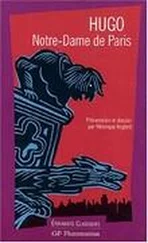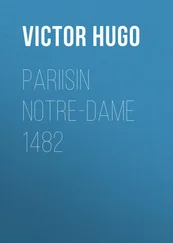Zeynab turned to stone. A purple Mercedes SUV in the store parking lot! Ten minutes ago, as she and Aset entered the lingerie department, Qadi Malik had called on the phone to tell her he was on his way.
Zeynab was certain that she had become a widow. But it was not because of the car—there were other such vehicles! No, the horrible conviction came from another source, a savage sense that she had been humiliated. It was as if she had been robbed, tricked, deceived by someone looking her straight in the eyes, by invisible enemies who were now laughing and pointing a finger at her. The First Rose dress had been bought in vain, the raspberry teddy had been ordered in vain, the bottle of Opium perfume was packed in vain, and different colors of hair gel, the plush shoes and pearl clutch. All her purchases had been in vain, and there would be no others. Her brother-in-law’s wife, the evil Emina (a plain Turkish woman who had always been jealous of Zeynab,) would take care that the widow respected the customs. All the customs.
Standing next to Zeynab, Aset did not know how to stop herself from trembling. She suddenly remembered her Grandma Madeleine, who refused to leave the house for the last ten years of her life—just so she would not have to put on a chador.
“You are shapeless, utterly shapeless! You are not women, you are uglier than frogs,” she would say, shaking her stubborn head. “Since your mouth is already covered by fabric, then at least keep it shut! Do not be a shapeless, mouthless pile of screeching cloth!”
Zeynab was wailing spasmodically next to Aset—who was suddenly overcome with unexpected disgust. She found no strength to help her friend. Soon the wailing stopped. Zeynab slumped and fell.
No one, of course, even attempted to put out the red flames licking up through the metal shell of the vehicle. When it finished burning, the crime inspectors would come. The loiterers standing next to Eugène-Olivier were arguing about the best and worst features of the model of SUV burning before them. Eugène-Olivier dropped the remote control into his deepest pocket and moved back several steps. He turned around and began walking. Slowly, even more slowly!
Planting a magnetized device under the raised floor of an SUV was less than half the work. Much more difficult than organizing an explosion was walking away slowly, instead of rushing to escape. Eugène-Olivier, who imagined for his own reasons that Sevazmios was watching him, forced himself to occasionally stop or slow down, imitating someone whose curiosity was occasionally overcoming his fear. The stupid clothing would protect him; the only important thing had been to choose it correctly.
“ATTENTION! ATTENTION! REMAIN IN YOUR PLACES! SEAL OFF THE STREET AT THE INTERSECTIONS!”
Wasn’t technology wonderful? A policeman’s voice suddenly came through on the loudspeaker normally reserved for the call of the muezzin . Earlier, they wouldn’t have thought of using it. Now they would place a vehicle in the middle of the street to block it off, and then they would start checking everyone, without exception.
Luckily, the intersection was near.
Eugène-Olivier bolted toward it as one hustles toward an elevator whose doors have begun to close.
He was running now, moving in such a way that the wind flapped his uncomfortable clothing around, billowing the sleeves like sails, lifting the hem he was holding; he didn’t care about authenticity any more. A young black man, obviously one of the volunteer deputies of the religious guard, tried to trip him with his foot—since his hands were busy with the pie he had just bought, and he had no intention of putting down the pie for the sake of catching some criminal. But he had to say goodbye to his pie stuffed with mutton and red peppers anyway when Eugène-Olivier kicked him in the knee as he ran. The kicked youth fell, and the pie began to roll around on the pavement. The crowd did nothing, simply milling around on the sidewalk, because they feared the fugitive might have a pistol. Eugène-Olivier didn’t. The police did. A few shots rang out above the wailing of the sirens.
Shelter was not far away, about ten minutes. It was a very special place, used only in exceptional cases. Actually, he doubted there could be anywhere to hide near the Champs-Élysées. But the address he had learned only this morning was carved in his memory as if he had always lived there. Here it was, a two-story building from the nineteenth century.
Vaulting up the marble steps of the main entrance, Eugène-Olivier hurried toward the side door. An old electric buzzer that must have been a hundred years old rang shrilly. The intercom came on.
“Hello?”
A stupid word, even the Arabs could pronounce it correctly. And the voice was young, female.
“Artos.” He didn’t even try to guess who had come up with the secret code. Someone, somewhere still liked Greek words.
“Inos,” she replied, and the door cracked open. The figure of a shortish girl appeared out of the semi-darkness on a dim, narrow, steep little staircase.
She motioned him into the shadows, murmuring, “Faster, faster!” The girl opened the door wider, and with an impatient gesture caught him by the arm and pulled him in.
The door bolt fell back in place.
“Follow me.” The girl did not continue up the stairs, but stepped around them into a small, glass-enclosed veranda that led to an inner courtyard. Usually such verandas are used for flowerpots. But here, there was a pile of newspapers and an almost-full case of Perrier.
“Wow, your heart is really pounding,” said the girl, using her foot to push open the unlocked door while she grabbed a bottle from the case. “Take those rags off. You want some water?”
“No,” answered Eugène-Olivier in an unexpectedly hoarse voice. He followed the girl. The courtyard, which had once been enclosed only by hedges, was now hidden from the world in accordance with Muslim custom by a solid concrete wall. Conveniently, as it turned out.
* * *
Here were several trees once sculpted to make the shape of a pyramid, but now uneven, a lawn, and a garage door on the wall leading to the street. Eugène-Olivier looked around the drab place with curiosity before he took a closer look at the girl.
She was about sixteen years old with chestnut brown hair, slightly wavy, inexpertly trimmed with scissors. The haircut looked like that of a medieval boy page. Her clothing was also boyish—worn-out jeans and a blue-and-white checked shirt with sleeves rolled to the elbow and an unbuttoned collar. But her figure was not at all boyish, although not fully mature. She looked plumper than she really was.
“Relax,” said the girl, opening the bottle and taking a sip of water. “This is the safest place in all of Paris. You can start stripping.”
“The safest place,” snapped Eugène-Olivier, nevertheless removing his chador. “Even if all your documents are in order, where are you going to hide a stranger when they start combing the neighborhood? They could be here in fifteen minutes.”
“In fifteen minutes we won’t be here,” she said with a smile. Her mouth was small and soft pink, and even after she stopped smiling, the smile remained in the corners of her lips. Eugène-Olivier’s heart really was beating more strongly. He was still enjoying her simplicity and naturalness in grabbing his arm with her small, firm hand to pull him through the door to the staircase—a young man she didn’t even know. It was like something her grandmother might have done in her youth, and so different from her peers today. They might have done the same thing just to prove to themselves that they were not poor Muslim girls. But violating the haraam they were under constant pressure. They reluctantly thought about how it all might end, and their moves were unnatural and affected. But she acted indifferent to danger.
Читать дальше



![Виктор Гюго - Собор Парижской Богоматери [Notre-Dame de Paris]](/books/30985/viktor-gyugo-sobor-parizhskoj-bogomateri-notre-thumb.webp)








